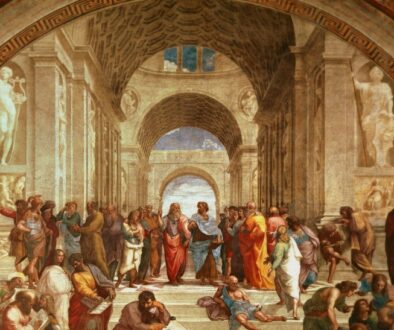The Stranger in the Woods: Solitude and Silence for Their Own Sake

I talked to my friend David, who lives in Wales, this morning. He read me some quotes from an article by Michael Finkel in the U.K.’s The Guardian about a modern-day hermit, Christopher Knight, and then sent me a link to it, which I pass along to you. Be sure to read the entire first piece, because the last few paragraphs (printed below) will be of particular significance to all of us who’ve also heard the call of the Uncommon Voice in our own way.
The second link is to a longer article by Mr. Finkel, who is also the author of the book that arose from this hermit’s experience. His piece on Christopher Knight has became the most-read story in G.Q.’s long history.
Lastly, I have linked to the book, The Stranger in the Woods: The Extraordinary Story of the Last True Hermit, on Amazon in case you want to delve more deeply into this extraordinary experience of silence and solitude.
Into the Woods – TheGuardian.com
The Last True Hermit – G.Q.com
.
Knight said that he couldn’t accurately describe what it felt like to spend such an immense period of time alone. Silence does not translate into words. “It’s complicated,” he said. “Solitude bestows an increase in something valuable. I can’t dismiss that idea. Solitude increased my perception. But here’s the tricky thing: when I applied my increased perception to myself, I lost my identity. There was no audience, no one to perform for. There was no need to define myself. I became irrelevant.”
The dividing line between himself and the forest, Knight said, seemed to dissolve. His isolation felt more like a communion. “My desires dropped away. I didn’t long for anything. I didn’t even have a name. To put it romantically, I was completely free.”
Virtually everyone who has tried to describe deep solitude has said something similar. “I am nothing; I see all,” wrote Ralph Waldo Emerson. Lord Byron called it “the feeling infinite”. The American mystic Thomas Merton said that “the true solitary does not seek himself, but loses himself”.
For those who do not choose to be alone – like prisoners and hostages – a loss of one’s socially created identity can be terrifying, a plunge into madness. Psychologists call it “ontological insecurity”, losing your grip on who you are. Edward Abbey, in Desert Solitaire, a chronicle of two six‑month stints as a ranger in Utah’s Arches National Monument, said that being solitary for a long time “means risking everything human”. Knight, meanwhile, didn’t even keep a mirror in his camp. He was never once bored. He wasn’t sure, he said, that he even understood the concept of boredom. “I was never lonely,” Knight added. He was attuned to the completeness of his own presence rather than to the absence of others.
“If you like solitude,” he said, “you are never alone.”





March 16, 2017 @ 7:50 pm
Fascinating! It’s interesting how we can relate so much to this, the desire to just disappear and blend in with nature, though the vast majority of us would never want the actual hermit experience (especially in winter!).
Love,
Kathleen
March 20, 2017 @ 12:26 am
What a perfect ending line: “He could no longer disappear into the wild, so he wished to melt away into the world.”
Reminds me of your “we’re all archetypes for each other”. The book Ego Tunnel made clear that the virtual worlds our brains make even “reach out” to other ego tunnels to be sustained. This is actually the first internet. The sensory inputs are the signals accepted to reinforce the internally interpreted world. The North Pond Hermit raided for food and what other input he chose. As the line above indicates, his way was more direct than the convoluted ways egos in the world have learned to “melt away”.
I guess we can choose where we’re looking from. We stare at the internally conjured world, or we accept we’re the internet of all things. The poor hermit retained the guilt of the miserable private world. I wish he could have enjoyed a more bear-like experience, and knew he was One with those cabins and their food and the body’s needs.
March 20, 2017 @ 12:37 am
I completely get where you’re coming from, but just to push the point, notice that none of it could not have happened any other way. Seeing and accepting that truth here – and everywhere else in our lives – is what takes the sting out of unrealized wishes and/or expectations. :-)♥
I know you love ACIM. The smallest framed object on my studio backdrop table – the one you can’t read! LOL – has an ACIM quote that reads, “Those who see themselves as whole make no demands.” _()_
March 26, 2017 @ 10:51 pm
This one blew my socks off, followed by a deep sense of truth. Wasn’t certain how the phrase the sense here in words.
March 26, 2017 @ 10:54 pm
Incredible, huh? 🙂